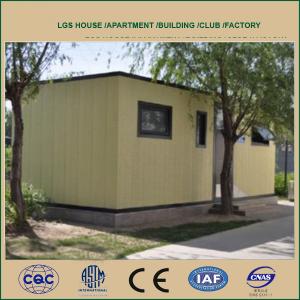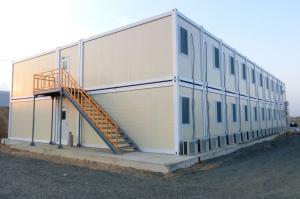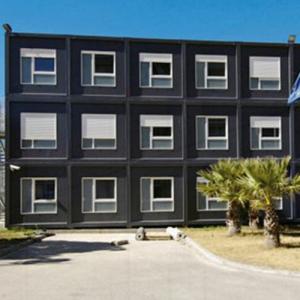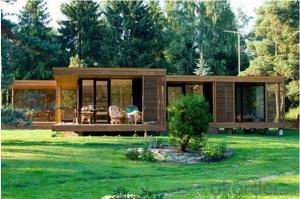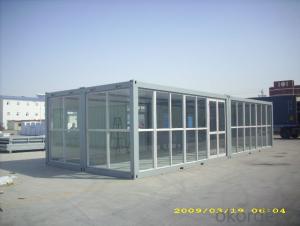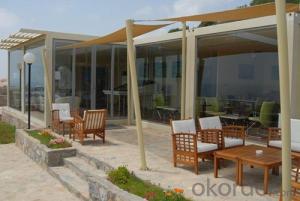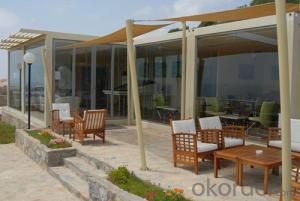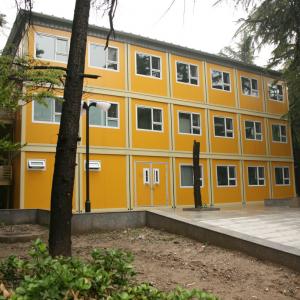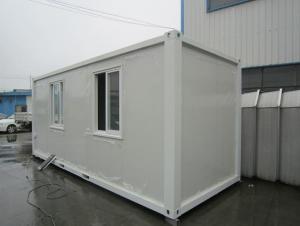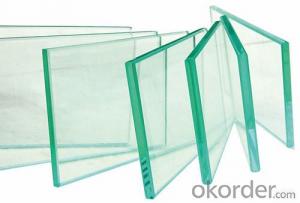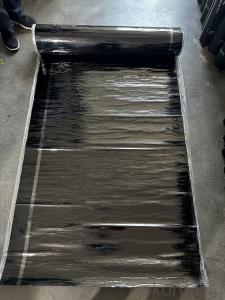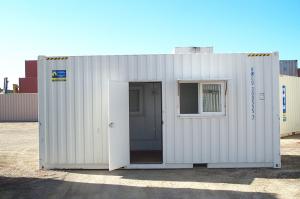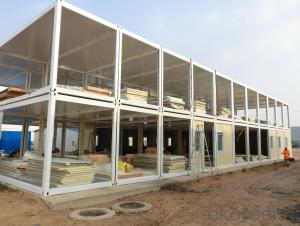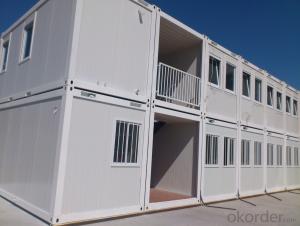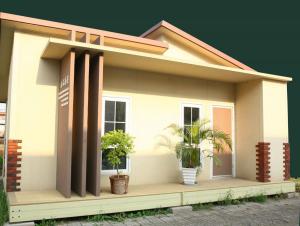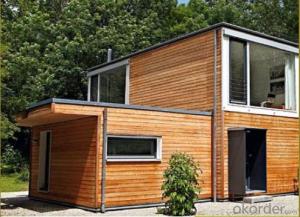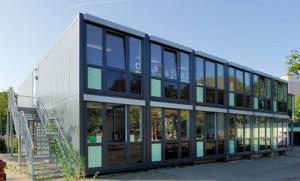Low Cost Prefabricated Container House of CNBM
- Loading Port:
- Tianjin
- Payment Terms:
- TT OR LC
- Min Order Qty:
- 100 m²
- Supply Capability:
- 6000000 m²/month
OKorder Service Pledge
OKorder Financial Service
You Might Also Like
Low Cost Prefabricated Container House of CNBM
1.The following pictures are our 100,000 square meter production base & model houses for showing: We have eight production lines, production capability reach to 600,000 square meters per month.
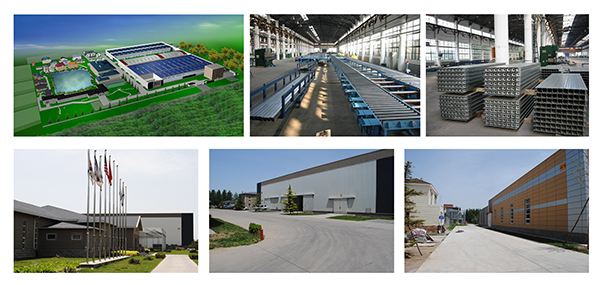
Up to now, we have cooperated with more than 70 countries:

2.Products structure diagram:
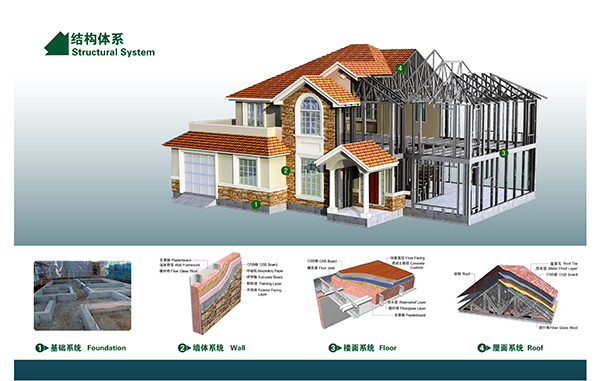
3. Assembly Instructions:
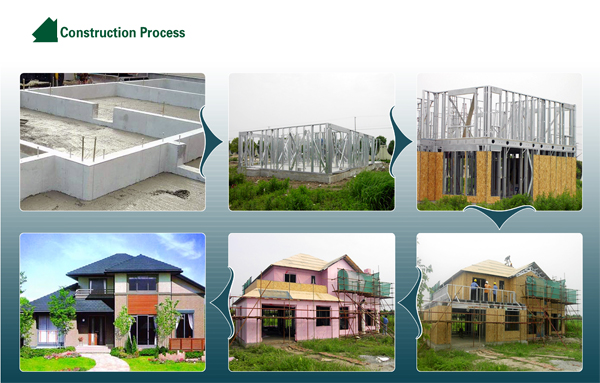
4.Our management system:
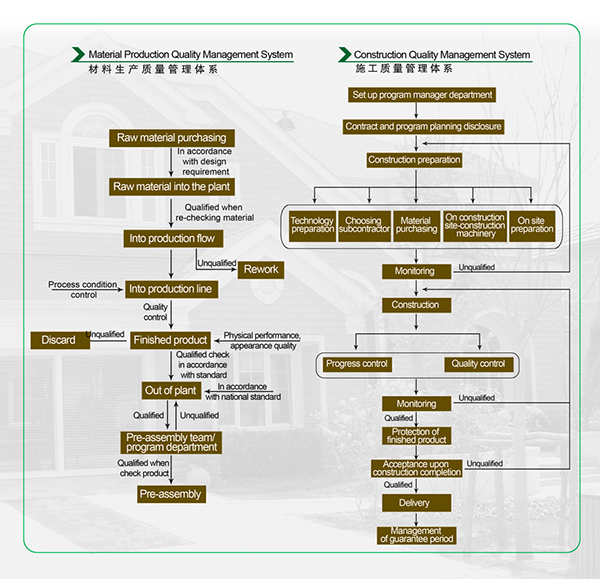
5.We can offer with the following products:
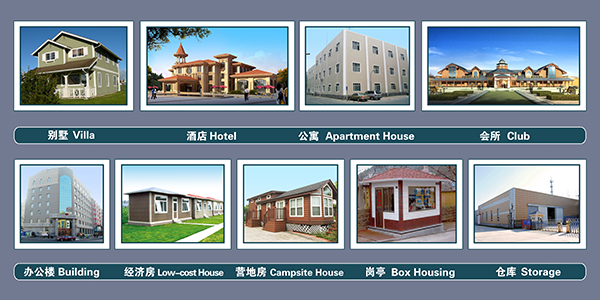
6. FAQ:
1.How about the installation? For example, the time and cost?
To install 200sqm house needs only 45 days by 6 professional workers. The salary of enginner is USD150/day, and for workers, it's 100/day.
2.How long is the life span of the house?
Around 50 years
3. And what about the loading quantity?
One 40'container can load 140sqm of house.
- Q:Can container houses be designed with rooftop gardens?
- Rooftop gardens are definitely possible in container houses. In fact, container houses provide an excellent opportunity to incorporate rooftop gardens due to their strong structure and flexibility. By utilizing the flat surface of the container roof, it is possible to create a thriving garden space that not only enhances the house's aesthetic appeal but also offers several advantages. Rooftop gardens in container houses can help regulate indoor temperatures by providing insulation and reducing heat transfer. The plants and soil act as a natural barrier, preventing excessive heat from entering the house during hot weather and providing insulation during colder months. This can significantly reduce energy consumption and lower utility bills. Moreover, rooftop gardens contribute to improving air quality and providing a source of fresh produce. Plants absorb carbon dioxide and release oxygen, purifying the air and creating a healthier living environment. Additionally, container houses with rooftop gardens can grow vegetables, herbs, or even fruits, allowing homeowners to have a sustainable food source right at their doorstep. When designing a rooftop garden for a container house, it is important to carefully consider weight distribution, irrigation systems, and plant selection. Lightweight materials should be used to minimize the load on the container's roof, while efficient irrigation systems like drip irrigation can ensure plants receive enough water without wastage. Additionally, selecting plants that can thrive in the rooftop environment, such as succulents or drought-tolerant species, can make maintenance easier and more sustainable. In conclusion, container houses can indeed have rooftop gardens, providing numerous benefits such as improved insulation, reduced energy consumption, enhanced air quality, and access to fresh produce. With proper planning and design, rooftop gardens can transform container houses into sustainable and eco-friendly homes.
- Q:Can container houses be stacked or arranged in different configurations?
- Yes, container houses can be stacked or arranged in different configurations. The modular design of container houses makes them highly flexible and adaptable to various configurations. They can be stacked vertically to create multiple stories or horizontally to form larger living spaces. Additionally, container houses can be combined and connected in different ways, allowing for unique layouts and designs. This versatility is one of the advantages of container houses, as they can be easily customized and modified according to individual preferences and needs.
- Q:Are container houses suitable for artists or creative spaces?
- Yes, container houses are suitable for artists or creative spaces. They offer a unique and customizable environment that can be transformed into inspiring and functional art studios, galleries, or creative workspaces. The modular nature of container homes allows for easy expansion or modification to meet the specific needs of artists, providing a cost-effective and sustainable solution. Additionally, container houses can be located in diverse settings, fostering a connection to nature or urban landscapes, which can further stimulate artistic inspiration.
- Q:Can container houses be designed for multi-story living?
- Yes, container houses can be designed for multi-story living. While traditionally shipping containers are used as single-story structures, they can be stacked and combined to create multi-story container houses. This allows for the efficient utilization of vertical space and the ability to design larger living areas within a compact footprint. With proper structural reinforcement and engineering, container houses can be safely stacked to create multi-level living spaces. Additionally, the modular nature of containers makes it relatively easy to add and remove units as needed, providing flexibility and adaptability for multi-story designs.
- Q:Can container houses be financed?
- Yes, container houses can be financed. Many financial institutions, such as banks and credit unions, offer loans specifically for the construction or purchase of container houses. These loans are similar to traditional home loans, but may have some specific requirements related to the use of shipping containers as building materials. Additionally, some container house manufacturers or builders may offer financing options directly to their customers. It is important to research and compare different financing options to find the best terms and rates that suit individual needs.
- Q:Can container houses be built with a basement or crawl space?
- Indeed, it is possible to construct container houses with a basement or crawl space. Although container houses are primarily favored for their mobility and cost-efficiency, adjustments can be made to allow for the inclusion of a basement or crawl space. This typically entails strengthening the structure to bear the foundation's weight and establishing suitable entry points. By incorporating a basement or crawl space, homeowners can acquire supplementary storage or living area, and even integrate utility systems like plumbing and HVAC. To guarantee the structural soundness and safety of the container house when incorporating a basement or crawl space, it is imperative to seek guidance from a professional architect or engineer.
- Q:Can container houses be built with a contemporary retail store setup?
- Yes, container houses can be built with a contemporary retail store setup. Container houses are becoming increasingly popular due to their versatility, affordability, and sustainability. These houses can be designed and customized to meet various needs, including retail spaces. With the right modifications and interior design, containers can be transformed into stylish and functional retail stores. The container's modular nature allows for easy expansion or reconfiguration of the retail space as needed. Additionally, containers can be stacked or combined to create multi-level or larger retail setups. Container houses can also be equipped with modern amenities such as large windows, glass doors, and climate control systems to create an inviting and comfortable shopping experience for customers. Interior design elements like shelving, display cases, and lighting can be strategically incorporated to enhance the retail aesthetic. Moreover, container houses offer the advantage of mobility. If desired, the retail store setup can be easily transported to a new location, providing flexibility for business owners. Containers can also be designed to be easily disassembled and reassembled, making it convenient to move or expand the retail space as the business grows. In summary, container houses can indeed be built with a contemporary retail store setup. They offer a unique and innovative solution for businesses looking for cost-effective, sustainable, and customizable retail spaces.
- Q:Are container houses suitable for vacation or rental properties?
- Yes, container houses are suitable for vacation or rental properties. Container houses have gained popularity in recent years due to their affordability, sustainability, and versatility. They can be easily converted into comfortable and stylish living spaces suitable for vacations or rentals. Container houses offer several advantages for vacation or rental properties. Firstly, they are cost-effective. Containers are readily available and relatively inexpensive compared to traditional housing options. This makes them an attractive choice for property owners looking to invest in vacation or rental properties without breaking the bank. Secondly, container houses are highly customizable. With some creativity and design expertise, containers can be transformed into modern and stylish living spaces. They can be easily modified to include all the necessary amenities such as bedrooms, bathrooms, kitchens, and living areas, ensuring that the occupants have a comfortable and enjoyable stay. Additionally, container houses are eco-friendly. By repurposing shipping containers, we are reducing waste and promoting sustainability. These houses can also be equipped with energy-efficient features like solar panels, rainwater harvesting systems, and proper insulation, further reducing their environmental impact. Furthermore, container houses are portable and can be easily transported to different locations, making them ideal for vacation or rental properties. They can be placed in scenic areas, near the beach, or in other desirable locations to attract tenants or vacationers. The mobility of container houses also allows property owners to explore different markets and maximize their rental income. However, it is important to consider the potential limitations of container houses for vacation or rental properties. Container houses may have limited space compared to traditional houses, which can affect the number of occupants that can comfortably stay in them. Additionally, noise insulation may also be a challenge, so proper insulation and soundproofing measures may need to be implemented. In conclusion, container houses are indeed suitable for vacation or rental properties. Their affordability, versatility, and eco-friendliness make them an attractive choice for property owners. With proper customization and design, container houses can provide a unique and comfortable experience for vacationers or tenants, making them an excellent investment option for those in the hospitality or rental industry.
- Q:Can container houses be insulated for better temperature control?
- Container houses have the potential to improve temperature control through insulation. The insulation's role is vital in maintaining a comfortable indoor temperature by reducing heat transfer between the container's interior and exterior. There are various insulation options available for container houses, including spray foam insulation, rigid foam insulation, and reflective insulation. These materials can be applied to the walls, roof, and floor of the container to minimize heat loss or gain. Furthermore, insulating windows and doors can also contribute to achieving better temperature control. By effectively insulating a container house, one can significantly enhance its energy efficiency and establish a more pleasant living environment, regardless of the external weather conditions.
- Q:Are container houses soundproof?
- Container houses can be soundproof to some extent, but it depends on the specific construction and insulation techniques used. While shipping containers are made of steel, which can help block out some noise, additional measures like insulating the walls, floors, and ceilings can greatly improve soundproofing. However, it's important to note that achieving complete soundproofing can be challenging due to the inherent nature of the container structure.
1. Manufacturer Overview |
|
|---|---|
| Location | |
| Year Established | |
| Annual Output Value | |
| Main Markets | |
| Company Certifications | |
2. Manufacturer Certificates |
|
|---|---|
| a) Certification Name | |
| Range | |
| Reference | |
| Validity Period | |
3. Manufacturer Capability |
|
|---|---|
| a)Trade Capacity | |
| Nearest Port | |
| Export Percentage | |
| No.of Employees in Trade Department | |
| Language Spoken: | |
| b)Factory Information | |
| Factory Size: | |
| No. of Production Lines | |
| Contract Manufacturing | |
| Product Price Range | |
Send your message to us
Low Cost Prefabricated Container House of CNBM
- Loading Port:
- Tianjin
- Payment Terms:
- TT OR LC
- Min Order Qty:
- 100 m²
- Supply Capability:
- 6000000 m²/month
OKorder Service Pledge
OKorder Financial Service
Similar products
New products
Hot products
Hot Searches
Related keywords
